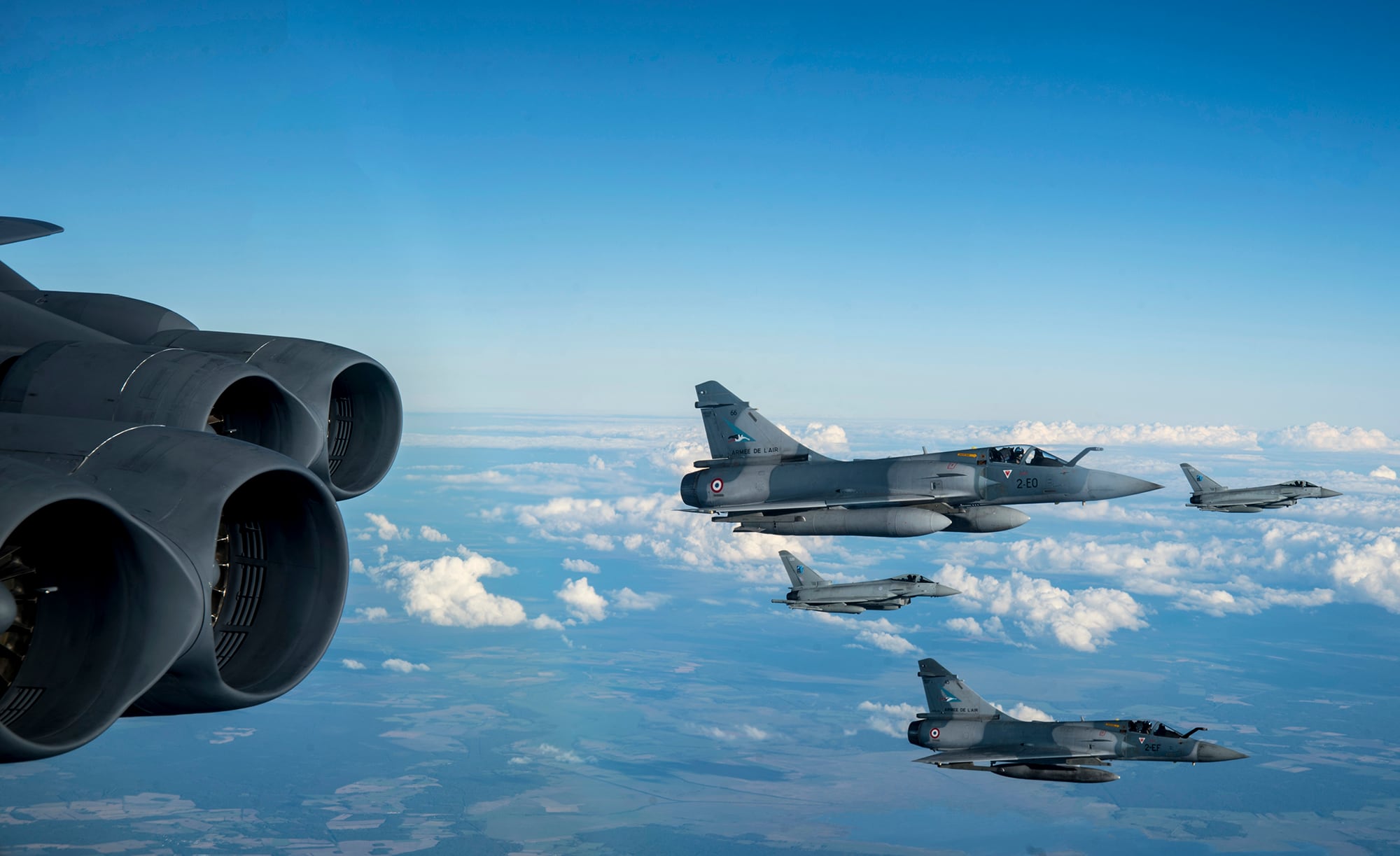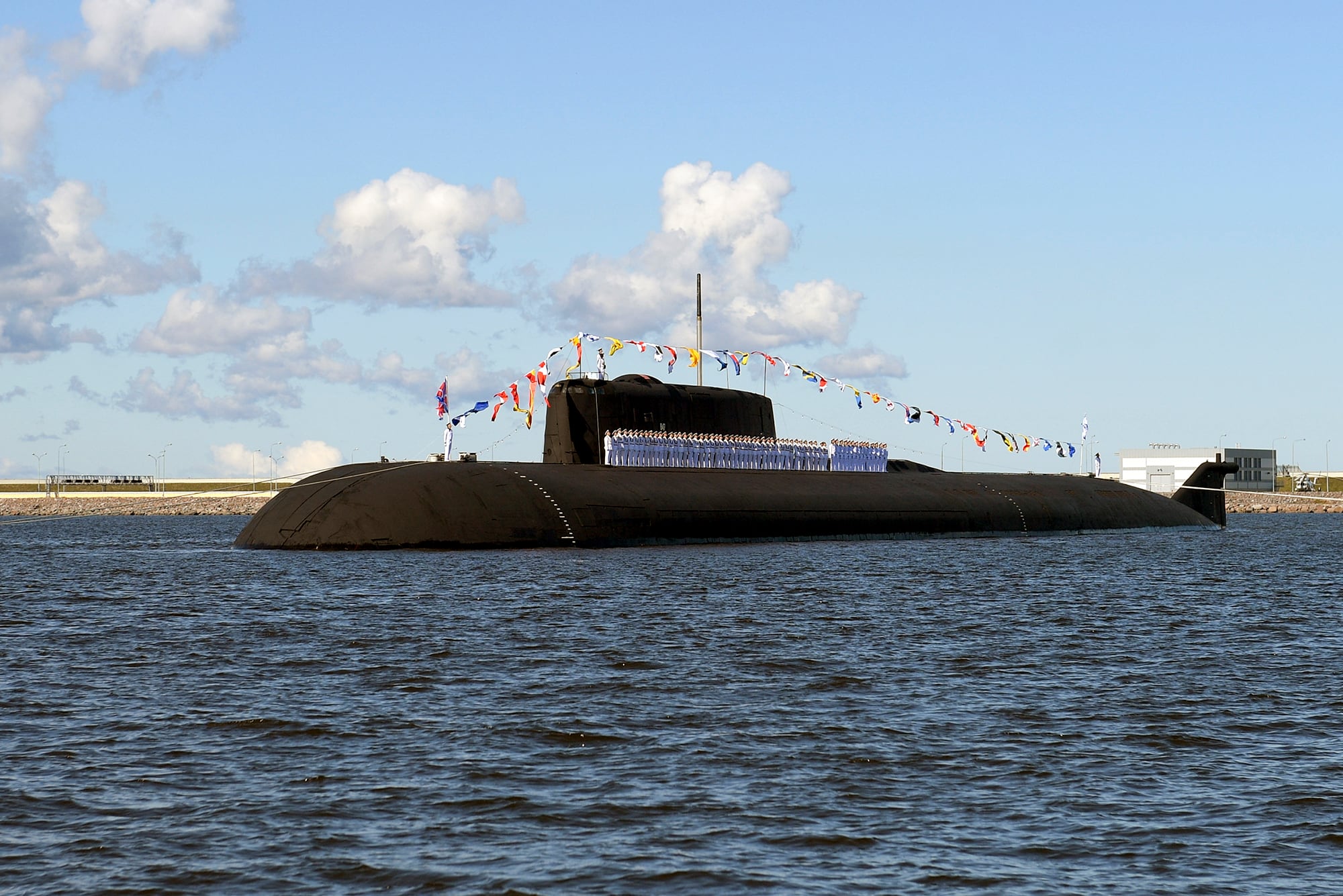BERLIN — American B-52 Stratofortress bombers flew over all 30 NATO countries on Friday in an exercise the U.S. military said was meant to demonstrate the alliance’s solidarity, amid growing signs of cracks.
The U.S. military later said that two Russian military planes conducted an unsafe intercept of a B-52 over the Black Sea on Friday. NATO on Monday said a Russian fighter committed a significant violation of airspace of a NATO nation while intercepting another U.S. B-52 over the Baltic Sea, also on Friday.
Four of the long-range jet bombers based in Britain were flying over European members of NATO, integrating along the way with several partner nations’ fighters and refueling aircraft. Two other Stratofortresses based in North Dakota were flying over Canada and the United States.
On Saturday, the U.S. military said that two Russian military planes conducted an unsafe intercept of a B-52 as it flew over international waters on Friday over the Black Sea. In a press release, the U.S. said Russian pilots flew in an unsafe and unprofessional manner while crossing within 100 feet of the nose of the B-52 multiple times, causing turbulence and restricting the B-52′s ability to maneuver. The U.S. also released video of the incident.
“Actions like these increase the potential for midair collisions, are unnecessary, and inconsistent with good airmanship and international flight rules,” said Gen. Jeff Harrigian, U.S. Air Forces in Europe-Air Forces Africa commander. “While the Russian aircraft were operating in international airspace, they jeopardized the safety of flight of the aircraft involved. We expect them to operate within international standards set to ensure safety and prevent accidents,” he added.

NATO said Monday that another B-52 was intercepted Aug. 28 by a Russian Su-27 fighter in international airspace over the Baltic Sea. The intercept occurred well into Danish airspace near the vicinity of Bornholm Island. Danish jets were launched to counter the violation, but the Russian fighter jet turned back before interception.
“This incident demonstrates Russia’s disrespect of international norms and for the sovereign airspace of an allied nation. We remain vigilant, ready and prepared to secure NATO airspace 24/7,” Harrigian said in a NATO news release Monday.
The single-day mission is part of regular flight missions that have been taking place in Europe since 2018, but is meant specifically to “demonstrate NATO solidarity, enhance readiness and provide training opportunities” by involving the airspace of every member nation, the U.S. European Command said.
It comes amid an escalating dispute between NATO nations Greece and Turkey over jurisdiction over waters in the Mediterranean, and strong-arm tactics from U.S. President Donald Trump to press NATO allies to spend more on defense that have left many of them resentful and concerned about America’s commitment.
“U.S. security commitments to the NATO Alliance remain ironclad,” said Gen. Tod Wolters, commander of U.S. European Command, in a statement. “Today’s bomber task force mission is another example of how the Alliance sustains readiness, improves interoperability and demonstrates our ability to deliver on commitments from across the Atlantic.”
RELATED

He said such operations also served to emphasize the American “commitment to global security and stability.”
“By further enhancing our enduring relationships, we send a clear message to potential adversaries about our readiness to meet any global challenge,” Wolters said.
Military Times staff contributed to this report.



